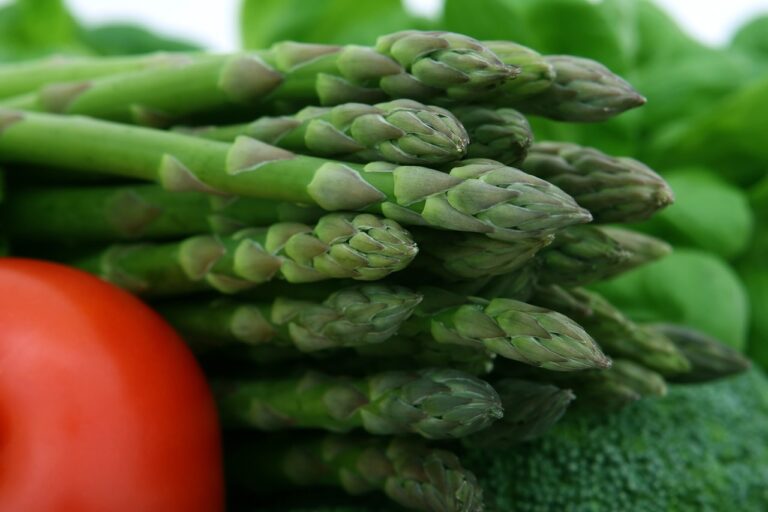The Impact of Climate Change on Pasta Production: Allpanel login, Mahadev online book, Cricket online id
allpanel login, mahadev online book, cricket online id: Climate change is a pressing issue that is affecting various aspects of our lives, including the food we eat. One staple food that is being impacted by climate change is pasta production. Pasta is a beloved food around the world, but its production is facing challenges due to the changing climate.
Climate change is causing shifts in temperature and precipitation patterns, which are affecting the agriculture sector. Pasta production relies heavily on wheat, which is a crop that is sensitive to changes in climate. Here, we will explore the impact of climate change on pasta production and what it means for the future of this popular food.
Effects of Climate Change on Pasta Production:
1. Changes in temperature: Climate change is causing temperatures to rise across the globe. Wheat crops require specific temperature ranges for optimal growth, and extreme heat can have negative effects on wheat production. High temperatures can reduce yields and result in poor grain quality, which can impact the production of pasta.
2. Water scarcity: Changes in precipitation patterns are leading to water scarcity in many regions. Water is essential for the growth of wheat crops, and without an adequate water supply, crop yields can be significantly reduced. Water scarcity can also impact the quality of the wheat, affecting the texture and taste of the pasta produced.
3. Pests and diseases: Climate change is also creating favorable conditions for pests and diseases to thrive. Pests such as aphids and diseases like rust can damage wheat crops, reducing yields and quality. Farmers may need to use more pesticides and fungicides to protect their crops, which can have environmental and health implications.
4. Changes in growing seasons: Climate change is causing shifts in growing seasons, with some regions experiencing longer or shorter growing periods. These changes can disrupt the planting and harvesting schedules for wheat crops, leading to uncertainties in pasta production. Farmers may need to adapt their practices to accommodate these shifts in growing seasons.
5. Soil degradation: Climate change can also contribute to soil degradation, reducing the fertility and quality of the soil. Healthy soil is essential for the growth of wheat crops, and soil degradation can impact yields and nutrient content. Sustainable farming practices are needed to prevent soil degradation and maintain the health of the soil for pasta production.
6. Economic implications: The impact of climate change on pasta production can have economic implications for farmers, producers, and consumers. Reduced yields and poor quality wheat can lead to increased prices for pasta products. Farmers may also incur higher production costs due to the need for additional inputs to mitigate the effects of climate change.
What Can Be Done:
1. Sustainable farming practices: Implementing sustainable farming practices can help mitigate the effects of climate change on pasta production. Practices such as crop rotation, cover cropping, and reduced tillage can improve soil health, reduce water usage, and enhance resilience to pests and diseases.
2. Diversification: Diversifying crops can help farmers adapt to changing climate conditions. Growing a variety of crops alongside wheat can provide alternative sources of income and reduce reliance on a single crop. Diversification can also help to improve soil health and biodiversity on farms.
3. Water management: Efficient water management is crucial for sustainable pasta production. Implementing irrigation techniques such as drip irrigation and mulching can help conserve water and improve water use efficiency. Water-saving technologies and practices can also reduce the impact of water scarcity on wheat crops.
4. Research and innovation: Investing in research and innovation is essential for developing climate-resilient wheat varieties. Plant breeders can develop wheat varieties that are more tolerant to heat, drought, pests, and diseases. Research can also help to identify new farming practices and technologies to improve pasta production in a changing climate.
5. Policy support: Governments can play a key role in supporting pasta production in the face of climate change. Policies that incentivize sustainable farming practices, provide financial assistance to farmers, and promote agricultural research and innovation can help mitigate the effects of climate change on pasta production.
FAQs:
Q: How is climate change affecting pasta production globally?
A: Climate change is affecting pasta production globally by causing changes in temperature, water scarcity, pests and diseases, growing seasons, soil degradation, and economic implications.
Q: What can farmers do to adapt to the impacts of climate change on pasta production?
A: Farmers can adapt to the impacts of climate change by implementing sustainable farming practices, diversifying crops, managing water efficiently, investing in research and innovation, and seeking policy support.
Q: How can consumers support sustainable pasta production in the face of climate change?
A: Consumers can support sustainable pasta production by choosing products that are produced using sustainable practices, reducing food waste, and advocating for policies that promote sustainable agriculture.
In conclusion, climate change is posing challenges to pasta production, but with proactive measures and collective efforts, we can work towards a more sustainable and resilient pasta industry. By acknowledging the impacts of climate change on pasta production and taking action to address them, we can ensure a future where pasta continues to be a cherished part of our diets.







